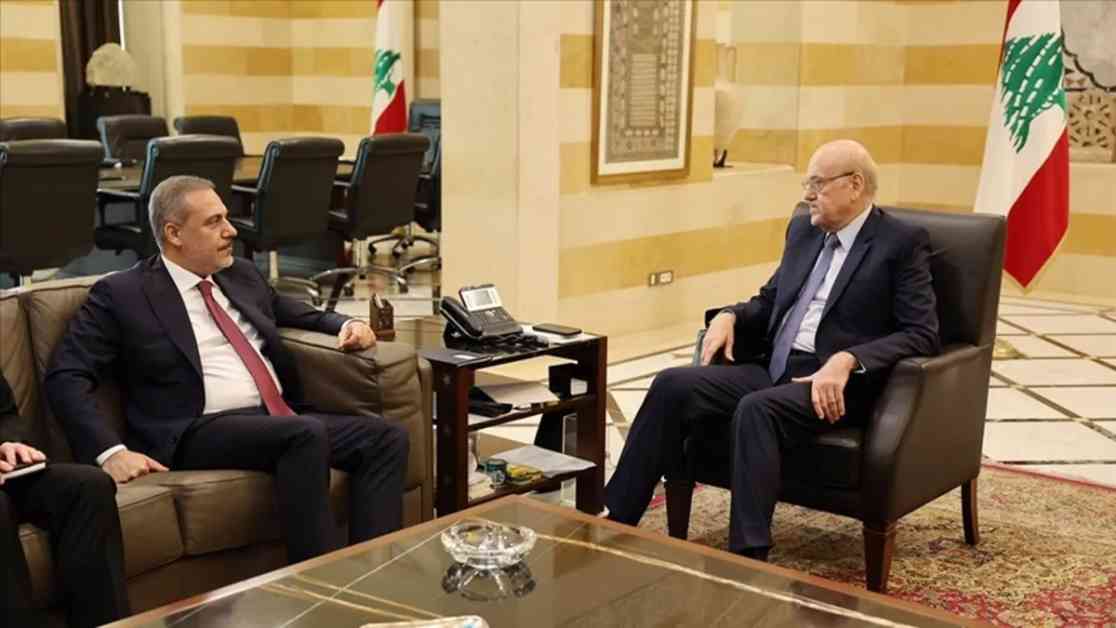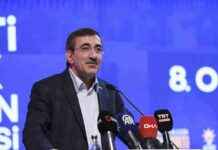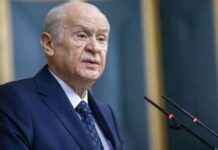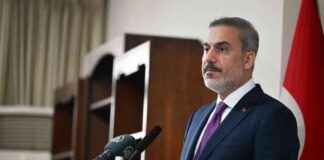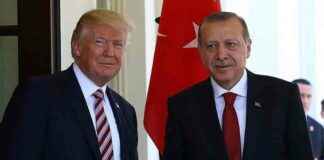Foreign Minister Fidan Holds Talks with Lebanese Prime Minister Mikati
In a recent development, Foreign Minister Fidan held a phone conversation with Lebanese Prime Minister Mikati following the attacks carried out by the detonation of call devices in Lebanon.
According to diplomatic sources, during the phone call with Mikati, Fidan received information regarding the attacks involving the detonation of call devices in Lebanon. He expressed his condolences to the Lebanese people for the loss of lives in the explosions.
Explosions Targeting Call Devices in Lebanon
Lebanon witnessed simultaneous explosions in call devices used by Hezbollah members. The Lebanese Ministry of Health confirmed that as a result of the detonation of call devices used by Hezbollah members across the country, nine individuals, including a child, lost their lives, with approximately 2,800 people sustaining injuries, 200 of them severely.
The situation has escalated tensions in the region, with no official statement yet from Israel, despite the ongoing conflict along the Israel-Lebanon border since October 8, 2023. The recent uptick in hostilities has raised concerns about the potential for further violence in the area.
International Concerns and Responses
The international community has expressed deep concern over the situation in Lebanon, urging all parties to exercise restraint and work towards de-escalation. Various countries have condemned the attacks on call devices in Lebanon and called for a peaceful resolution to the conflict.
The United Nations has called for an immediate ceasefire and dialogue between the parties involved to prevent further loss of life and ensure stability in the region. The Security Council is closely monitoring the situation and stands ready to take action to address the escalating tensions.
Regional Implications and Geopolitical Dynamics
The recent events in Lebanon have significant regional implications, affecting the delicate balance of power and alliances in the Middle East. The involvement of Hezbollah, a prominent Lebanese political and militant group, has further complicated the situation and raised concerns about potential spillover effects in neighboring countries.
The escalating tensions between Israel and Lebanon have exacerbated the already volatile security situation in the region. The risk of a wider conflict looms large, with the potential for further violence and instability in the area.
In light of these developments, diplomatic efforts are underway to de-escalate tensions and prevent a further escalation of hostilities. Dialogue and negotiation remain crucial in resolving the conflict and maintaining peace and stability in the region.
The international community, including the United Nations and major world powers, has a vested interest in preventing a further deterioration of the situation in Lebanon and the broader Middle East. Cooperation and coordination among all stakeholders are essential to address the root causes of the conflict and pave the way for a peaceful resolution.
As the situation continues to evolve, the focus remains on finding a diplomatic solution to the crisis and preventing further violence and bloodshed. The coming days will be critical in determining the future trajectory of the conflict and the prospects for peace in the region.
In conclusion, the recent attacks on call devices in Lebanon have raised serious concerns about the stability and security of the region. Diplomatic efforts must be intensified to de-escalate tensions and prevent a further deterioration of the situation. The international community plays a crucial role in facilitating dialogue and negotiation to find a peaceful resolution to the conflict and ensure the well-being of the people in Lebanon and the wider Middle East.

